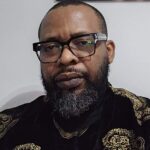The recent appointment of Mrs Bianca Ojukwu as Minister of State for Foreign Affairs is nothing to jubilate about within the South-East Region, the Igbo Nation. While some celebrated the nomination, we the Igbo-Biafra Nationalists and the Indigenous People of Igbo Nation for Self-Determination recognise it as yet another example of the Nigerian state’s tokenism towards the South-East region. This appointment, which places Mrs Ojukwu in a junior, subordinate position under the substantive Minister of Foreign Affairs, raises significant questions about the sincerity of Nigeria’s leadership in addressing the legitimate grievances of the South-East region and the Igbo people.
The role of the Minister of Foreign Affairs in Nigeria is a senior and substantive position, leading the Nigeria’s foreign policy, diplomatic relations, and consular services for citizens abroad. This officeholder is a member of the Federal Executive Council and wields substantial influence over Nigeria’s international standing and relations. In contrast, the position of Minister of State for Foreign Affairs is a junior role, largely advisory and secondary, under the direct authority of the substantive minister. Mrs Bianca Ojukwu’s appointment to this role is, therefore, a mere formality to appease the gullible rather than impactful, offering little real influence over Nigeria’s foreign policy or international engagements. It is a clear reminder of how the Nigerian state continues to offer the Igbo people superficial gestures rather than genuine empowerment or equal representation.
The question that naturally arises is this: Why should the Igbo people, one of Nigeria’s largest and most accomplished ethnic groups, accept such token gestures as adequate recognition or representation? The appointment of Mrs Ojukwu to a subordinate role does not address the South-East’s fundamental demands for political parity or equality, protection from systemic violence, and economic equity. Such an appointment does nothing to counteract the long-standing discrimination, political marginalisation, and economic strangulation that the South-East region has endured for decades.
What the South-East Demands: Genuine Equality, Not Token Representation
The grievances of the South-East region are clear and longstanding. What the Igbo people seek is not token appointments or nominal representation, but substantive equality and genuine inclusion in Nigeria’s political and economic framework. At the core of these demands are the following key issues:
- Equal Number of States: The South-East is the only geopolitical zone in Nigeria with just five states, while other regions have six or more. This disparity directly impacts the region’s representation in the National Assembly, as well as its access to federal resources and development funds. The South-East is entitled to equal representation through an equal number of states, which would allow for fair and proportional representation in the Senate and House of Representatives.
- Equal Representation in the National Assembly: The deliberate short-changing of the South-East in terms of states and local governments has led to underrepresentation in Nigeria’s legislative bodies. With fewer representatives in the Senate and House, the South-East’s ability to influence national policies is severely curtailed. The region demands equal representation in the National Assembly, ensuring that the voices of the Igbo people are heard and their interests defended at the federal level.
- Substantive Appointments in Government: The Igbo people are not asking for tokenism but for positions that carry real authority and decision-making power. Substantive ministerial appointments where the South-East representatives are fully in charge of their jurisdictions would demonstrate respect and recognition of the region’s contributions and status within Nigeria. Appointments like the Minister of State for Foreign Affairs only serve to reinforce the perception that the Igbo people are considered second-class citizens within the country, unworthy of full autonomy and authority in governance.
- State Policies to Address Igbophobia and Anti-Igbo Violence: The South-East has faced decades of systemic discrimination and state-sponsored violence. The recent waves of Igbo-phobia, deliberate attacks on Igbo businesses, and targeted violence against Igbo people across Nigeria are deeply concerning. There is an urgent need for state policies that explicitly condemn and address anti-Igbo prejudice and violence, ensuring the protection of Igbo lives and properties and punishing those who engage in hate speech or incite violence against the South-Easterners.
- Economic Equity and Protection of Igbo Properties: The deliberate targeting of Igbo properties and businesses, especially in commercial first in Northern part of Nigeria and recently in Lagos, has crippled the economic power of the South-East region.The South-East demands protection of its economic interests and an end to the state-sponsored economic sabotage that has left the region economically vulnerable. The Igbo people’s entrepreneurial prowess,success, and contributions to Nigeria’s economy should be recognised rather than seen as a threat and be targeted for destruction.
The Systemic Demotion of the Igbo People: From Majority to Minority Status
The Nigerian state’s policies have systematically worked to reduce the Igbo people from one of Nigeria’s largest ethnic groups to a politically and economically marginalised minority. The deliberate fragmentation of the South-East, underrepresentation in key national institutions, and exclusion from positions of influence are all part of a larger strategy to suppress the Igbo identity and limit the region’s influence. This strategy can only be understood as a form of ethnic cleansing and demographic manipulation aimed at reducing the Igbo people’s presence and power within Nigeria.
The Nigerian state’s actions over the years have not only marginalised the Igbo politically but have also effectively depopulated the South-East through violent military operations, economic deprivation, and the destruction of Igbo businesses and properties. The targeting of Igbo youths through heavy-handed security operations is part of a broader attempt to depopulate and weaken the Igbo Nation, removing the next generation of leaders and entrepreneurs. This policy of marginalisation and depopulation is not only discriminatory but also amounts to a crime against humanity under international law.
The Case for Remedial Secession: When Tokenism is Insufficient, Autonomy Becomes Essential
The superficial and subordinate appointment of an Igbo figure as Minister of State for Foreign Affairs does nothing to address the underlying issues that the South-East has raised for decades. Token gestures, such as this appointment, are inadequate in addressing the systemic discrimination, political exclusion, and economic marginalisation that the South-East endures. When a state consistently refuses to treat a particular region as an equal partner and instead relegates it to a subordinate position, the call for self-governance and remedial secession becomes a justified response.
The South-East has exhausted its efforts to attain equality within the Nigerian framework, and each token gesture or superficial appointment only highlights the deep-seated unwillingness of the Nigerian state to respect the rights and contributions of the Igbo people. The insult of appointing an Igbo representative to a junior ministerial position without any real power or influence is emblematic of the state’s broader attitude towards the South-East—an attitude of disdain and disregard for the region’s aspirations, achievements, and rights.
When a region’s calls for equality, protection, and fair representation are repeatedly ignored or trivialised, the international principles of self-determination and remedial secession offer a path forward. There are about 48 ministers (32 substantive ministers and 16 ministers of state). At least 8 are from South-West , the South-East has 2, and the remaining substantive ministers from North-West, North-Central, and North-East. As stated before, the ministers of state are inconsequential and as not included in the equation. The Igbo-Biafra Nationalists and the Indigenous People of Igbo Nation for Self-Determination therefore assert that the South-East’s quest for greater autonomy and self-governance is not only justified but necessary in light of the Nigerian state’s continuous oppression and refusal to address these fundamental issues.
Finally, the Igbo people demand real and equitable representation. The Igbo people are not content with token appointments or superficial gestures of inclusion. The South-East demands real representation, substantive equality, and protection from state-sponsored violence and economic sabotage. The appointment of Mrs Bianca Ojukwu as Minister of State for Foreign Affairs, a junior and subordinate position, is emblematic of the insulting, condescending manner in which the Nigerian state continues to treat the Igbo people. It is time for the Nigerian government to recognise that the South-East is an integral and equal part of Nigerian enterprise, deserving of the same political power, economic security, and representation afforded to other regions.
Anything short of full and substantive equality reinforces the need for greater autonomy for the South-East. If Nigeria cannot or will not treat the South-East as an equal partner, then the quest for self-governance and remedial secession becomes not only a matter of justice but a matter of survival. The international community must recognise the legitimacy of the South-East’s grievances and support its call for self-determination, as a people’s right to equality and security must be respected.
Uche Mefor is the Convenor of the Igbo-Biafra Nationalists and the Indigenous People of Igbo Nation for Self-Determination



